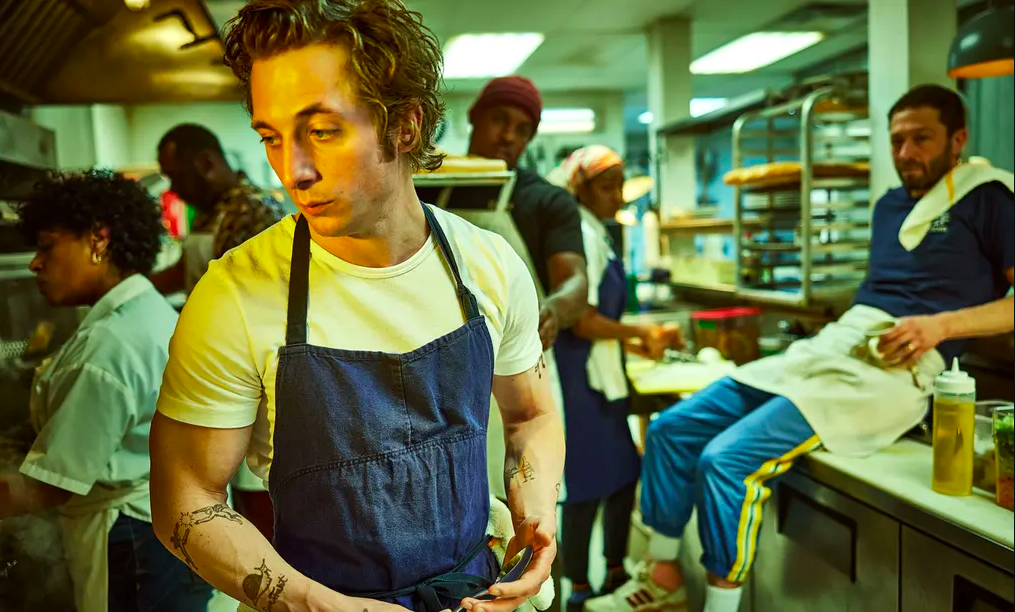Running a restaurant is risky business all around, especially when you’re doing it single-handedly. You give up a huge chunk of change to set everything up and you put your sanity on the line to make sure it operates smoothly—never mind tasting even a small morsel of success. I’m just a writer who has personally dreamed of running a nice watering hole, but I know the costs of actually doing it can be rather grave.
The ups and downs of the restaurant business is what Hulu’s critically acclaimed series “The Bear” tackles. It’s available to watch on our local edition of Disney+, which also shows content from sister platforms such as Hulu, thanks to its exclusive setup in the Philippines. (Most people and their kids are excited about the Disney content, but I’m more hyped for the grown-up stuff that’s also there.)
“The Bear” does also actually dive into Carmy’s (and a little bit of everyone else’s) mental health, accurately demonstrating the real psychosomatic effects of anxiety.
In “The Bear,” 31-year-old Jeremy Allen White (“Shameless” and “Homecoming”) plays wunderkind chef Carmen “Carmy” Berzatto, who left his job at the so-called “world’s best restaurant” in New York to take over The Beef, his family’s Italian beef sandwich restaurant in Chicago after his older brother, who haphazardly ran it, died by suicide. Much of the plot revolves around Carmy’s attempts at modernizing The Beef and making it a bit more professional, after his training at the Culinary Institute of America.
Anthony Bourdain once referred to most kitchen crews as a motley assortment of uncouth yet skilled and loyal vagabonds who, despite their roughness, are important in the restaurant running smoothly. I’m not exactly sure how much the stereotype holds in the United States, but it’s played to perfection in “The Bear,” with the un-formally trained staff serving as a nice contrast to Carmy’s and Sydney’s (Ayo Edibiri) professional backgrounds.
All the tropes of both the restaurant industry and lower middle-class Chicago are present—from shouting chefs and staff, piling debts and financial mismanagement to the tension between honoring tradition and embracing change, and drugs, gangsters, and loan sharks. Despite the youthful creativity behind the show’s production and writing, some things never change, and that’s fine.
What I like the most is White’s portrayal of a relatively calm Carmy, who is actually more MasterChef Junior Gordon Ramsay at heart than regular MasterChef Gordon Ramsay. It’s a rare sight to see in kitchen stories like this, especially when chefs like Ramsay himself have popularized the hair-trigger boss stereotype. He only really blows up once or twice, when the show palpably evokes the stress and chaos of running a busy kitchen.
“The Bear” does also actually dive into Carmy’s (and a little bit of everyone else’s) mental health, accurately demonstrating the real psychosomatic effects of anxiety. Carmy regularly dreams of his stressful and traumatic situations from both the past and present, he breaks down a little in the middle of a heavy episode, and more. The suicide of his brother Michael is also somewhat implied as a result of the stress of running The Beef.
If you needed a reminder, this series is the sign you’re looking for. And at eight episodes in the first season, it’s an easy binge-watch for those looking to commiserate.
There is also a bear that somehow haunts him (thus, the name of the show) but this isn’t really explained well. My only gripe is that it only really scratches the surface of the true effects of this industry, especially on people in management and chef positions, as it gives way to the story of operating the restaurant.
Without giving too much away, at the climax of the season, Carmy and The Beef find some success, but of course not all restaurant stories end like this. Beyond that, a lot of entrepreneurs (more than chefs) will find a lot of similar threads between their careers and Carmy’s journey of reforming his family business, and they’ll likely enjoy the three-dimensional, irreverent, and expletive-laden script.
And for those who carry their formal training proudly, “The Bear” also vindicates in that regard. The show is a tale (maybe even a fairytale) of how legitimate training, professionalism, and organization win out and become keys to success. If you needed a reminder, this series is the sign you’re looking for. And at eight episodes in the first season, it’s an easy binge-watch for those looking to commiserate.





